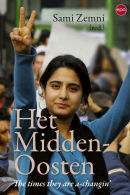Tu as aimé cet article. Veulliez nous soutenier.
(14-05-2013) Inside Baghdad’s 'Green Zone'
(16-02-2013) Appel du peuple Irakien - Le 14.02.2013
(14-02-2013) Statement Concerning the declarations of Wathiq Al-Battat, the secretary general of the ...
(14-05-2013) USAID: Missionaries of US Imperialism
(14-05-2013) Iraq's invisible refugee crisis
(17-05-2013) Sectarianism in Iraq stoked by Syrian war
(16-05-2013) Baghdad market attacks, shootings in north kill 17
(14-05-2013) Al-Maliki is directing Iraq to war once again
(03-05-2013) Al-Maliki is directing Iraq to war once again
(25-04-2013) Iraqi forces kill 43 Iraqis and destroy six mosques
(23-04-2013) Hawija: Chronicle of an Announced Mass Murder
(21-04-2013) Boston on the Tigris
(14-05-2013) Al-Maliki is directing Iraq to war once again
(14-05-2013) JFO: Press freedom is the worst in Iraq
(14-05-2013) Iraq's invisible refugee crisis
(14-05-2013) Al-Maliki is directing Iraq to war once again
(14-05-2013) Iraq's invisible refugee crisis
(24-04-2013) Iraq: State terrorism in Hawija
(06-04-2013) Summary of Events of the Iraqi Popular Revolution
(14-02-2013) Statement Concerning the declarations of Wathiq Al-Battat, the secretary general of the ...
(28-01-2013) Statement of the Constituent Assembly The Central Committee of Coordination to Support the Uprising ...
The BRussells Tribunal is independent and wants to remain independent.
The BRussells Tribunal is an activist think tank and peace organisation with a special focus on Iraq. Read more...



 The times they are a-changin' is het eerste grondige Nederlandstalig overzicht dat voorbij oppervlakkigheden en algemeenheden wandelt, en ook nog eens de hele regio bestrijkt, van Egypte en Tunesië tot Marokko, Libië, Syrië, Libanon, Palestina, Jemen, Jordanië, Irak, Bahrein en Israël. Daar bestaat een woord voor: een standaardwerk.
The times they are a-changin' is het eerste grondige Nederlandstalig overzicht dat voorbij oppervlakkigheden en algemeenheden wandelt, en ook nog eens de hele regio bestrijkt, van Egypte en Tunesië tot Marokko, Libië, Syrië, Libanon, Palestina, Jemen, Jordanië, Irak, Bahrein en Israël. Daar bestaat een woord voor: een standaardwerk.